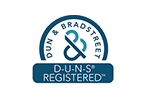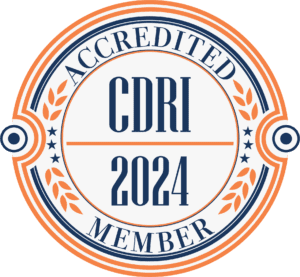5 Truths About Debt Relief Programs
Having mountains of debt can seem like an unbeatable feat, especially when searching for manageable solutions. While there are hundreds of seemingly viable options online to help with the situation, the truth about debt relief programs is that there are just as many myths as there are truths in the financial business. Distinguishing between the two starts with looking for debt relief programs, like the one with Liberty Debt Relief, that specialize in helping individuals set personal financial goals.
Understanding these five truths about debt relief and the related services can get you started with the program that will put you back on top today.
No. 1: Getting Help is Possible
Dealing with creditors on your own can be daunting. Getting experienced advice and assistance from debt relief companies, like Liberty Debt Relief, can help you navigate your financial hardship, whether it be active unemployment, medical emergencies, or even a difficult divorce. The first step is contacting us to learn more about exactly how we can help in your unique situation. Then, if debt settlement is for you, we can contact your lenders directly. If debt consolidation is more appropriate, we can point you in the right direction. It really is that simple.
No. 2: Bankruptcy Should Be Your Last Option
Bankruptcy should always be a last resort, but. if you are approved to file as such, just keep in mind that many of your major debts, such as some student loans, taxes, and child support, remain in your hands, and you are still required to make payments to them regularly. Along with being a more expensive route (between all the filing fees and attorney costs), being bankrupt remains public information for years. Of course, if you choose to work with a debt relief program and reach out to Liberty Debt Relief, you will receive tons of information about this option, including the types of bankruptcy and whom to contact for further assistance.
No. 3: Enrolling in a Program will Not Protect You from Future Debt
Settling your debts is a great effort to reduce the amount you owe at the moment, and they also serve as valuable lessons for all consumers. A good debt relief program will teach you how to manage your money more wisely and efficiently so you can remain debt free. If you do not take the lesson you should be learning to heart and only view the program as a ‘get out now’ solution, then there is a good chance you could end up in debt again. It takes time and a lot of financial tracking on your part, but you will eventually find yourself debt free and happier than ever.
No. 4: Debt Settlement is More Affordable than Debt Consolidation
Before making a choice to settle or consolidate, you must understand the difference between the two. Debt settlement is when a company like Liberty Debt Relief negotiates with the loan or credit company so you may be able to pay a smaller lump sum, rather than to struggle with the payments of the original amount owed. This method is best used with a single company rather than a number of different creditors because negotiations take time and focus on the part of debt relief companies. In the end, however, your debt may even be decreased by half! Even better, the cost to you for signing up in such a debt relief program is limited to fees the debt relief company will only charge once your debt is settled and you are in better financial health.
Debt consolidation, on the other hand, is when you combine all of your outstanding balances into a new loan, usually with a lower interest rate, so that you can better keep up with what you owe. While the length of your loan also changes, you end up owing the same amount over time and are required to maintain your monthly payments. Though debt consolidation is a great option for many, the amount of debt does not change as it does with a settlement. The best way to decide between settlement or consolidation is to seek advice from those experienced in debt relief programs and figure out the pros and cons that will help you reach your goals.
Liberty Debt Relief knows there is no universal solution for everyone. When it comes time to seek outside help regarding your finances and debts, keep an open mind and speak to our certified debt experts to find the solution that works best for you.









